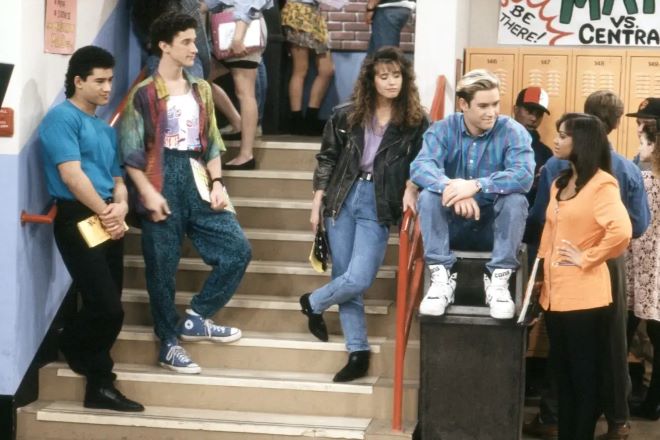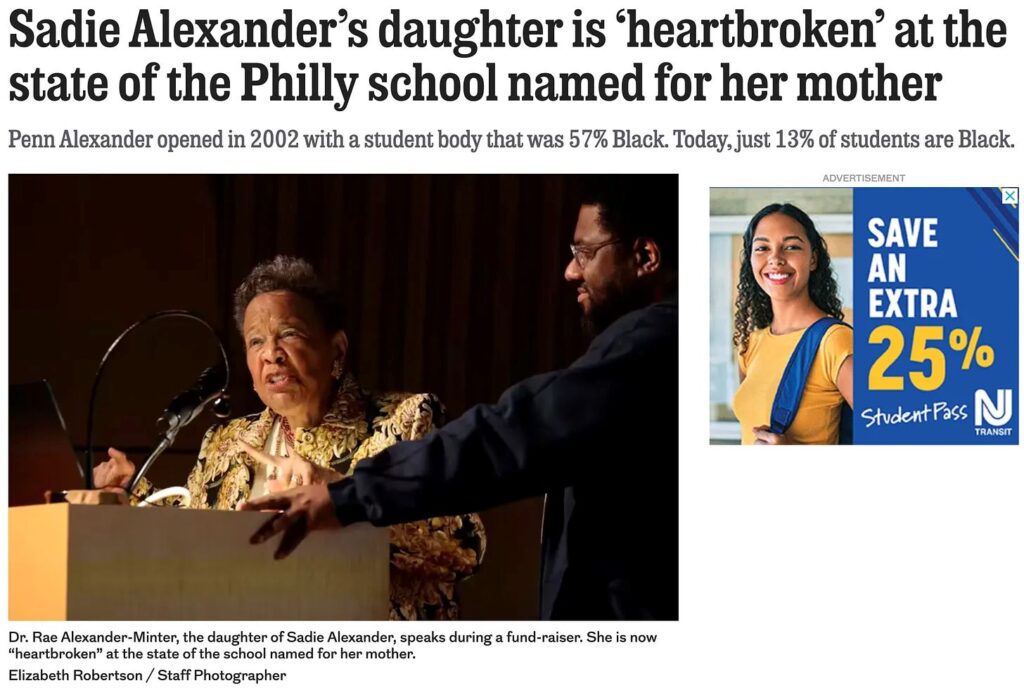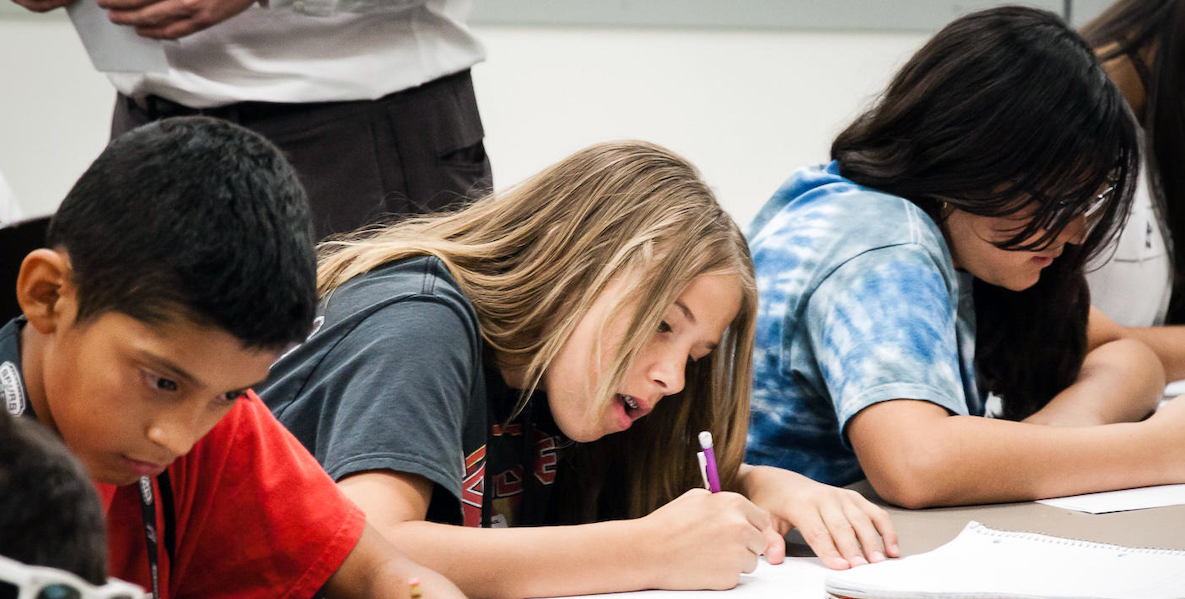You may remember a viral article 15 years ago, shortly after Sex & The City ended, in which women were told to marry men who were “good enough.” In the piece, author Lori Gottlieb proclaimed that women should stop holding out for Mr. Right (like the women on SATC), and instead marry Mr. Good Enough. While Gottlieb’s thinking about marriage feels especially dated in this spring of polyamory and modern love, I have been thinking about applying Gottlieb’s general thesis — don’t shoot for perfection; go for good enough — when it comes to public schools.
I was recently at a small, retreat-ish conference where another attendee came from the Philadelphia area. I asked her where she lived, and she replied, “Bryn Mawr. For the schools.” She might not have even said “For the” part; she might have just said “the schools,” or “You know, the schools.” The point was: That people live in certain towns for the schools is unquestioned, passed down from generation to the next like received wisdom. But why?
Later, in a car ride back from a hike with other conference attendees, public schools came up again. I explained how “the schools” comment bothered me and said something like I wished that people would worry less about the quality of public schools and just send their kids to their neighborhood school.
One attendee then told me about a public school right near him in Washington, D.C. where he’d witnessed high school students doing bad stuff — throwing bricks, breaking into cars, and causing other kinds of trouble, as I recall. Was this the kind of school I suggested children attend? Another person interjected that many kids need more attention than 30-person classes at public school can provide, and it’s all about finding the right fit for your kid. I agreed with that and shut my mouth.

But I’m a writer, not much of a speaker, and so here’s what I should have said: There’s a big range between schools where kids openly commit crimes on a frequent basis and the kind of schools where people rearrange their lives to live near them. That range includes what I’d call “good enough” schools — which are completely absent from the big conversations we’re having ad nauseam about parenting, about childhood anxiety, about inequality and segregation in our cities. These schools don’t have to be for everyone; they don’t have to be the right school for the entirety of K-12, but I think they could work for more families if parents would just question the general premise that mediocre schools aren’t good enough.
“Good enough” schools are the ones that get somewhere between a 3 and 5 on GreatSchools.org. These are schools that do nothing for the local housing market, and therefore you can buy a relatively affordable house nearby and walk your kid to school. Your child will not need an Apple watch or a Stanley water mug to attend these schools, nor will your child develop an anxiety disorder from a need to succeed in these schools. The test scores are generally a bit (or a lot) below average in these schools. These are schools where the teachers are well aware of people on the bottom rung, and so you will be frustrated that they teach to the bottom of the class, but you will be grateful that you pay almost nothing for aftercare until 6pm each day.

As we know, we live in hyper-competitive times. So now there’s pushback on helicopter parents who are slavishly attentive and protective of their kids in a bid to help them succeed. But why isn’t there any pushback on this extremely common pattern of parents slavishly rearranging their lives to live close to their region’s best public schools? Why don’t we see that the over-protectionist tendencies that prevent parents from letting their kids play outside are driven by the same kind of fear of letting their kids go to schools where there are a lot of kids from poor families who did not spend their preschool years practicing handwriting and learning to read?
Getting back to Gottlieb: Her ideas about Mr. Good Enough could be thought of another way. Everything is subject to the laws of diminishing returns. So much of life these days among the professional class is about optimizing and maximizing and trying for the best, ignoring the fact that shooting for “good enough” is actually the most efficient and effective way to live. Yes, the schools in Bryn Mawr are better — but to what degree? And is better actually better?
Ever since the 1950s when Dr. Donald Winnicott coined the idea of being a “good enough parent,” we’ve known that being perfect as a parent is actually counterproductive. Here’s a bit about Winnicott’s theory of parenting from a Wikipedia page on the parenting style:
A key function of good enough parenting is to provide the essential background to allow for the growing child’s disillusionment with the parents and the world, without destroying their appetite for life and ability to accept (external and internal) reality.
Thought of this way, a good enough school might do a better job of preparing your child for their eventual disillusionment with — and necessary coping with — American life these days.
You might wonder why I care about what another family chooses to do for their kid’s schooling. Unfortunately, other families consistently choosing to move out of cities to the suburbs “for the schools” depletes city schools from having high-income and highly educated families in the system (except those that move to the best city public schools!). The result is that we have extremely segregated schools, partly in terms of race but even more so in terms of income, which is a problem given that economic diversity has been proven to benefit everyone, particularly the lowest income learners.
To solve this, many cities have sought to help public schools compete with high-quality suburban ones. But because there’s often just a few of these sought-after, high-performing urban public schools, they’re putting gas on the flames of our countrywide affordable housing crisis, segregation crisis and opportunity hoarding crisis.

In Philadelphia, housing prices in one of the “best” school catchments, Penn Alexander, have seen extraordinary price appreciation ever since the University of Pennsylvania gave funding and other supports to the school. And the student body’s demographics have changed from 57 percent Black when it opened in 2002 to just 12 percent Black in 2023, leading the daughter of the school’s namesake to tell The Philadelphia Inquirer:
My mother was a civil rights advocate, sat on the first civil rights committee that President Truman put together, and fought for the lives and the ability of people who were marginalized to have access to the larger frills of society,” said Alexander-Minter. Her mother would not approve of the relative lack of access to Penn Alexander for Black students and other marginalized groups, she said.
Maybe we could have integrated schools, where kids of all backgrounds mix, if we just thought our neighborhood schools were good enough and didn’t move to the best catchments!
I hear the parent who acknowledges how public school doesn’t work for everyone and that you need to do what is best for your kid. As my younger child heads into kindergarten next year, maybe we’ll find this “good enough” school isn’t right for him. Maybe my older son won’t love his school forever or seek out the challenge of a magnet school when it comes time. The point isn’t to make this a solution for everyone, always and forever. The point here is to consider the “good enough” school as an option, to question why moving to “the schools” is so often part and parcel of the American way, like off-street parking and single-use plastic.
I’ve kept an open mind to the idea of the “good enough” school and I’ll be grateful to send my kids there for however many years it works out.
Diana Lind is a writer and urban policy specialist. This article was also published as part of her Substack newsletter, The New Urban Order. Sign up for the newsletter here.
![]() MORE ON PHILADELPHIA SCHOOLS
MORE ON PHILADELPHIA SCHOOLS



